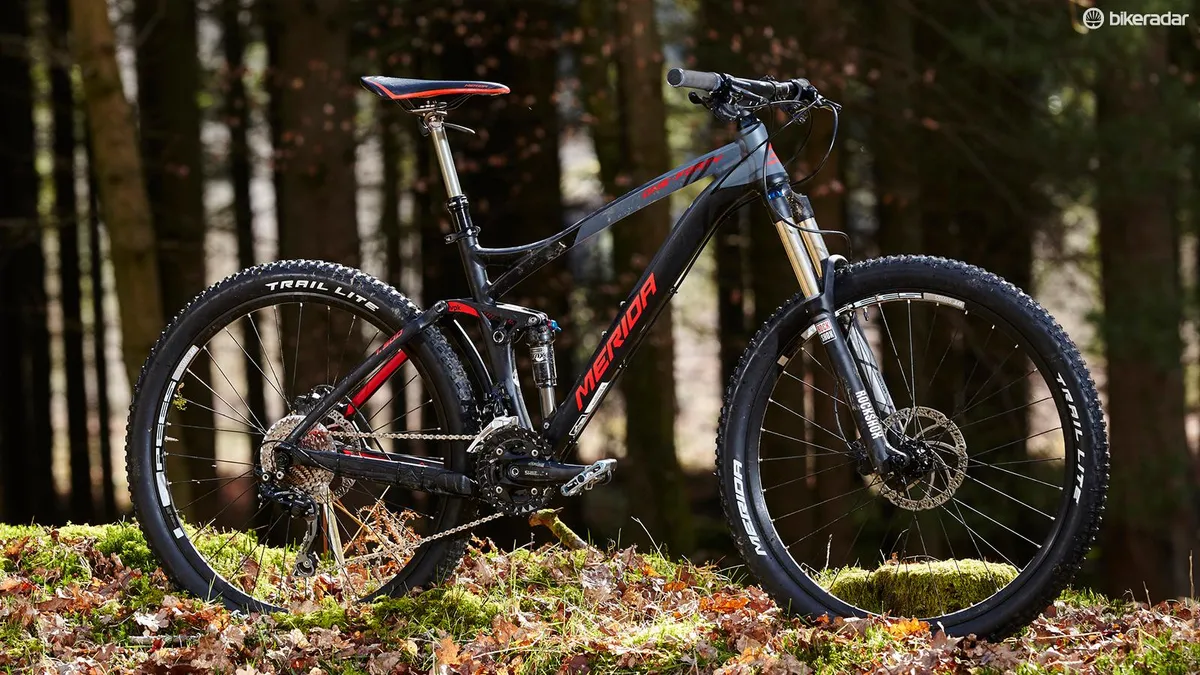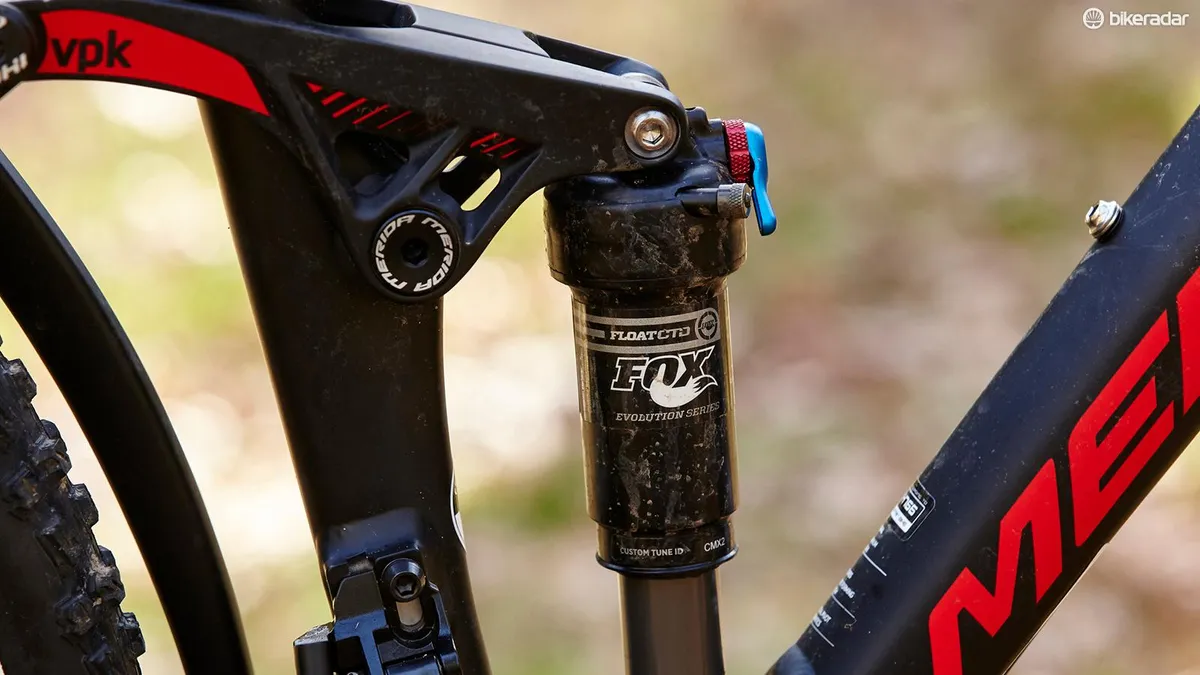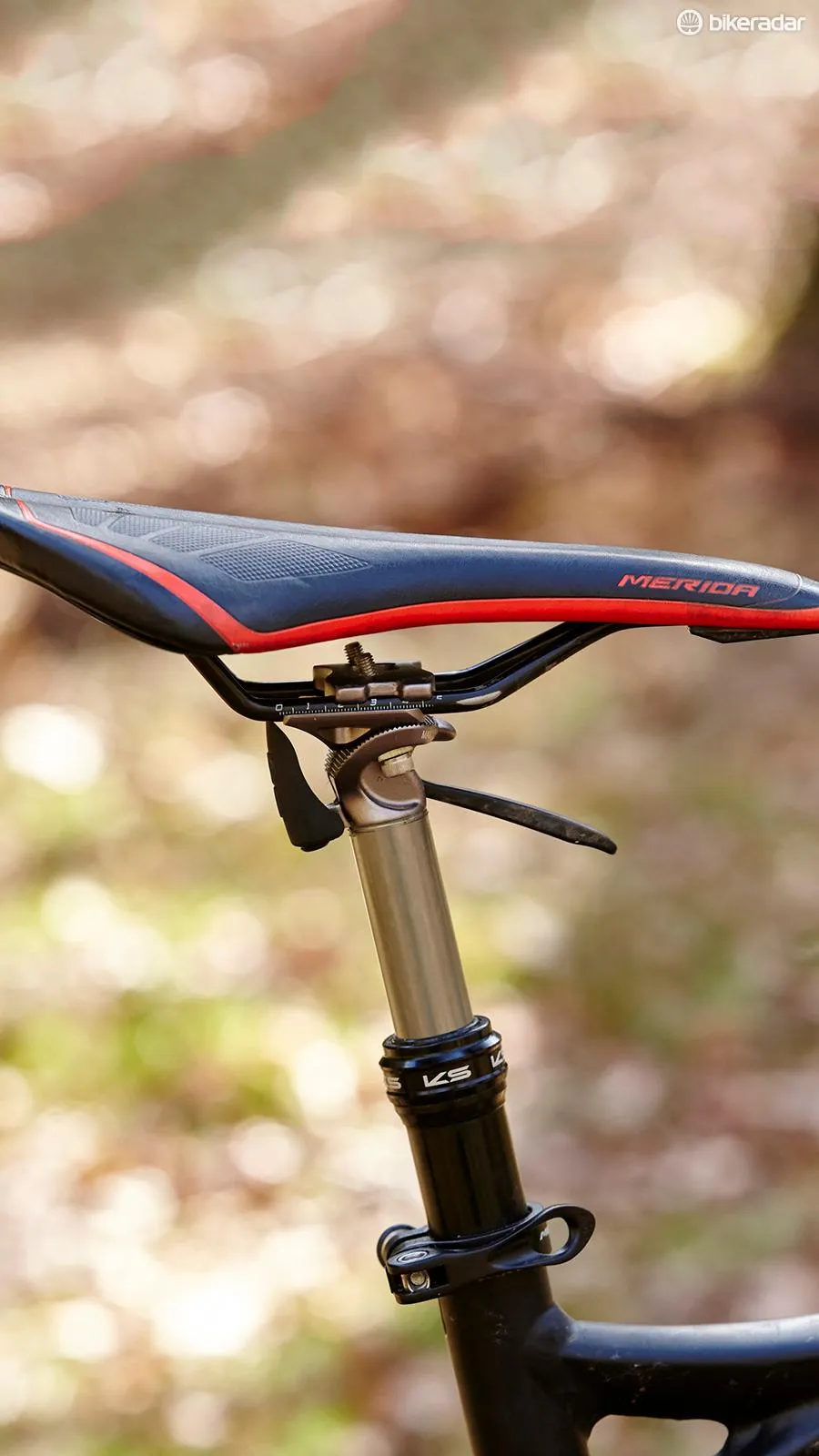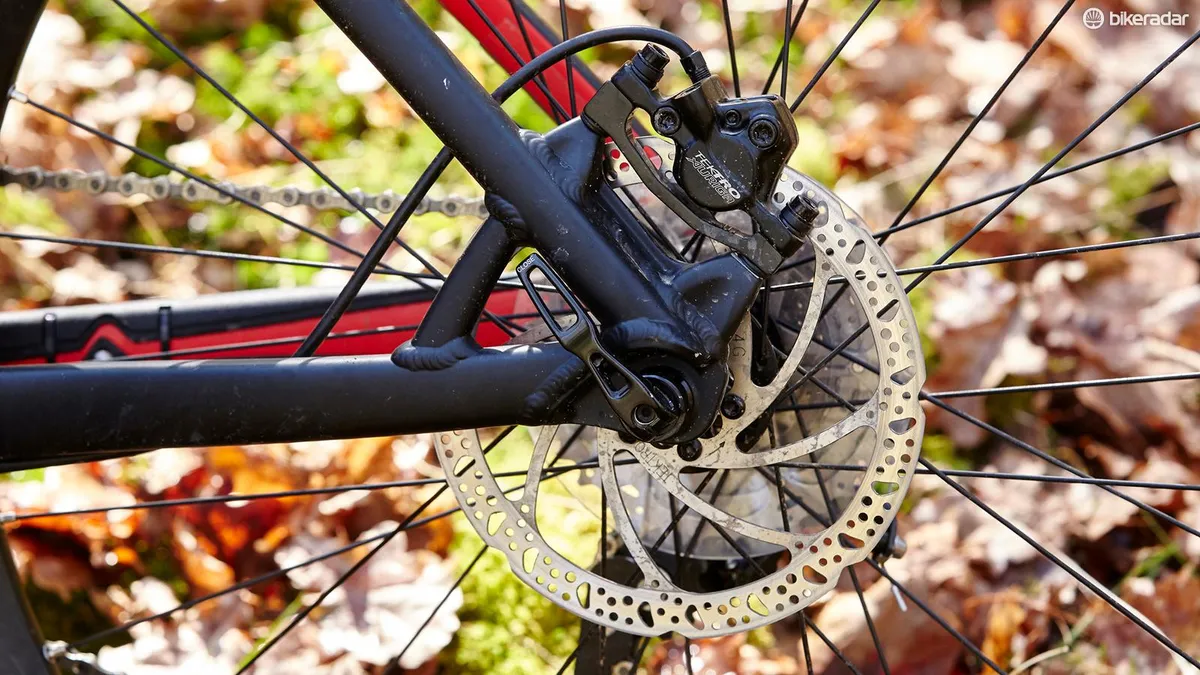Merida offers full-sussers in three travel configurations – 120mm (4.7in), 140mm (5.5in) and 160mm (6.3in) – with the two longer-travel bikes using a proprietary virtual pivot suspension design. With a RockShox fork, Fox shock, 180mm brake rotors and a dropper post, the One-Forty 7. 500 has hard-hitting credentials. Can it deliver?
Frame and equipment: mostly well-considered spec with a few odd choices
Merida’s experience as one of the world’s biggest bike manufacturers – it makes frames for a lot of other brands too – shows through in the One-Forty’s clean design and attention to detail. Hydroformed main tubes curve from the massive, tapered head tube back towards the seat tube, forming a strong and rigid structure into which to plug a 140mm fork. The bump eater in question – a RockShox Sektor – is a solid entry-level performer, with adjustable rebound damping and a lockout lever. There are plusher forks with more accurate steering, but it’d be churlish to grumble too much at this price.
The solid rear triangle is attached to the mainframe via a short, stout linkage at the bottom and a rocker driving the shock at the top. The lower shock mount sits inside the down tube, contributing to a clean look that doesn’t betray any hint of the travel on tap. The shock is Fox’s well-regarded Float CTD unit with a fairly aggressive compression damping tune. It’s good to see adjustable low-speed compression damping on a bike at this price.
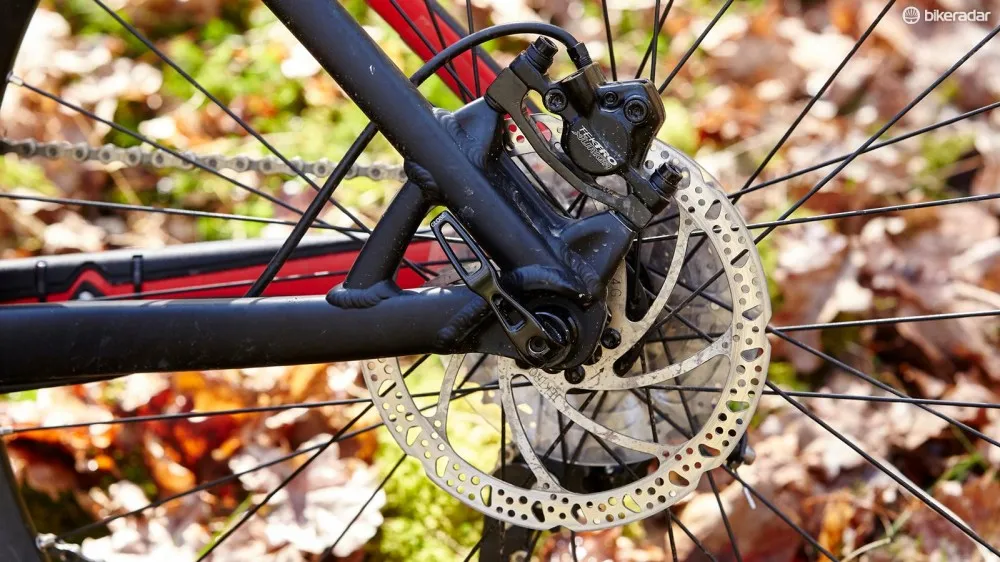
Big 180mm rotors dissipate heat effectively
Internal gear cable routing continues the quiet, neat and tidy theme, though it’ll make cable replacement a bit more of a chore down the line despite Merida’s enlarged down tube exit. A wraparound chainstay protector works with the clutch-equipped rear derailleur to keep chain rattle to an absolute minimum. Mud clearance under the chainstay bridge is extremely tight – fans of chunky treads need not apply.
Merida’s own-brand tyres provide plenty of cushioning and a tenaciously grippy open tread pattern. Fitted to Swiss DT rims spinning on unbranded hubs, they make for a reasonably light and lively wheelset that should stand up to some abuse. The choice of 180mm discs – which dissipate heat better than smaller rotors – makes sense, but we’re surprised to see a 3x10 transmission on a bike with a gravity bent. A double-and-bash setup would suit the One-Forty better.
The wide bar and stubby stem make it easy to muscle the front end over and around whatever surprises the trail throws up, while the KS Supernatural dropper post is a welcome spec bonus that’ll open up steeper, faster downhill lines to adventurous riders.
Ride and handling: loves the rough stuff but a limited all-rounder
Merida’s virtual pivot design creates a higher effective pivot point, changing the axis around which the rear axle rotates in the process. A high pivot point gives the rear axle a slight rearward arc as the suspension compresses, which is ideal for dealing with bigger hits. That’s why the system is used on Merida’s longer-travel bikes.
There’s no doubt that the One-Forty is in its element on fast, rough trails. Drop the seatpost, hunker down behind the wide bar and the virtual pivot system does its job, devouring trail detritus as though it’s not there, while the rigid frame structure helps keep everything pointing straight and true. The fork will give up long before the frame throws in the towel – a limitation of its basic internals that a long-term upgrade would take care of.
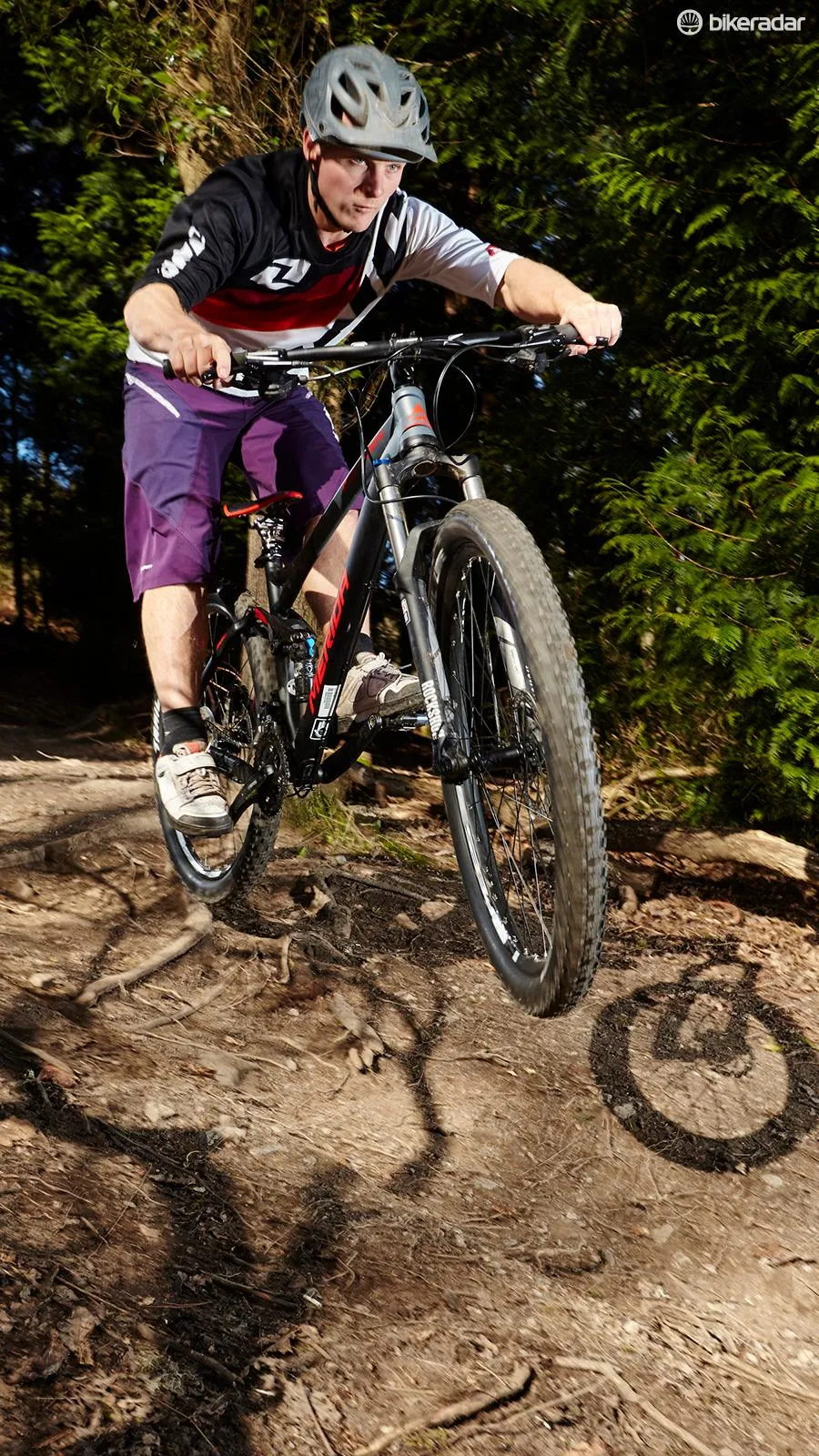
The Merida is impressively stable and competent on fast, rough descents, though the basic fork limits its downhill performance
The downside of a high pivot point is that it causes chain growth through the bike’s travel, which can be felt as a slight inchworm effect as the One-Forty rolls over bumps on granny-ring climbs. The shock’s aggressive compression tune helps limit this, but also reduces the suspension’s effectiveness over small bumps. This gives the Merida a firm, connected feel at slow speeds, but this is a bike that needs coaxing and cajoling up technical climbs – there’s no sitting back and letting the suspension suck the rear wheel to the ground here.
In practice this leaves the One-Forty trying hard to please everyone and ultimately not quite succeeding. At speed it’s far better than you’d expect for the money, but slow down and the limitations of the high effective pivot point suck much of the ground-hugging ability out of the suspension. If you live for the descents and ride fast and hard, it may be just the ticket. But for all-round ability, there are better options out there.
